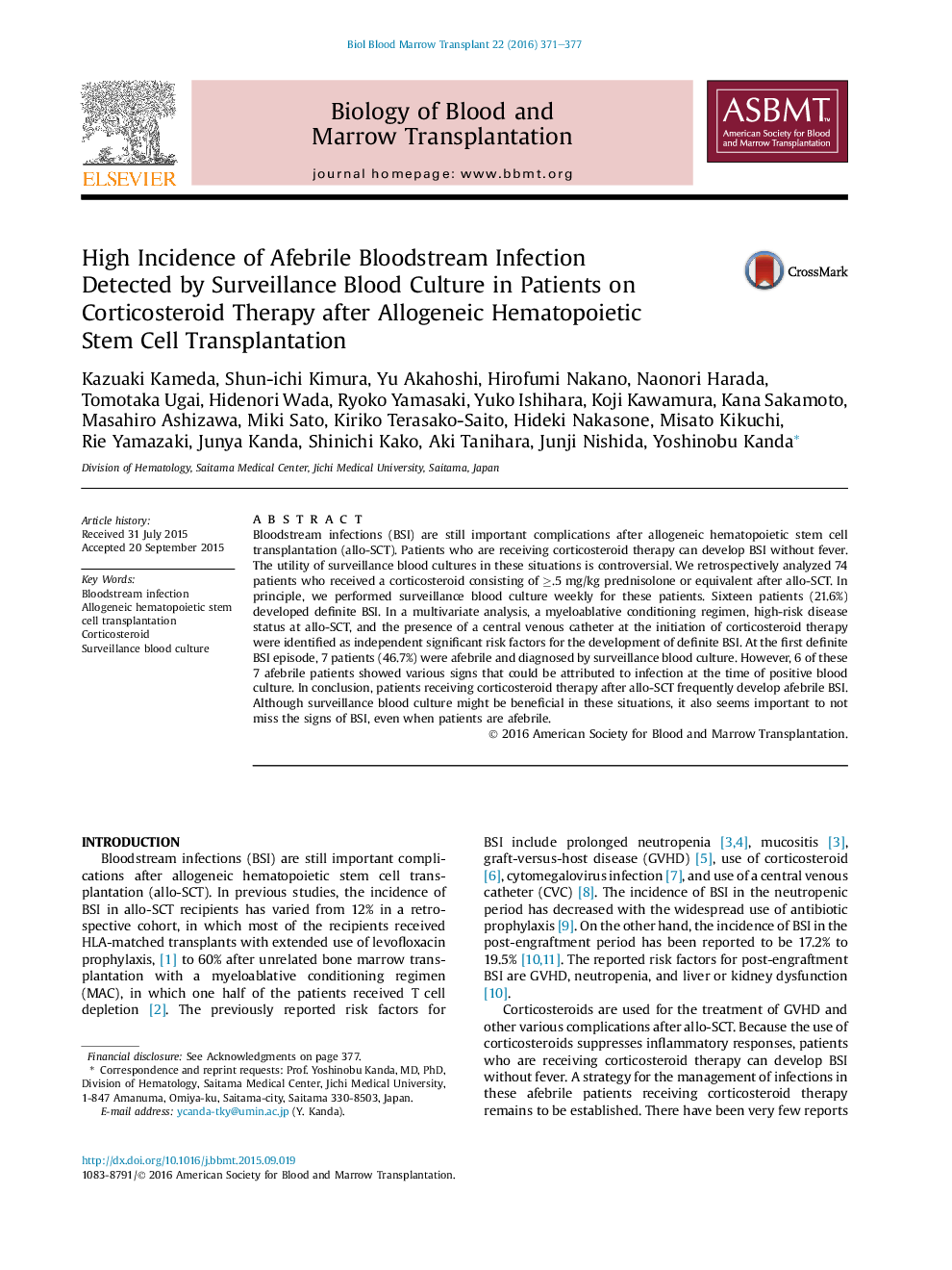| Article ID | Journal | Published Year | Pages | File Type |
|---|---|---|---|---|
| 8431203 | Biology of Blood and Marrow Transplantation | 2016 | 7 Pages |
Abstract
Bloodstream infections (BSI) are still important complications after allogeneic hematopoietic stem cell transplantation (allo-SCT). Patients who are receiving corticosteroid therapy can develop BSI without fever. The utility of surveillance blood cultures in these situations is controversial. We retrospectively analyzed 74 patients who received a corticosteroid consisting of â¥.5 mg/kg prednisolone or equivalent after allo-SCT. In principle, we performed surveillance blood culture weekly for these patients. Sixteen patients (21.6%) developed definite BSI. In a multivariate analysis, a myeloablative conditioning regimen, high-risk disease status at allo-SCT, and the presence of a central venous catheter at the initiation of corticosteroid therapy were identified as independent significant risk factors for the development of definite BSI. At the first definite BSI episode, 7 patients (46.7%) were afebrile and diagnosed by surveillance blood culture. However, 6 of these 7 afebrile patients showed various signs that could be attributed to infection at the time of positive blood culture. In conclusion, patients receiving corticosteroid therapy after allo-SCT frequently develop afebrile BSI. Although surveillance blood culture might be beneficial in these situations, it also seems important to not miss the signs of BSI, even when patients are afebrile.
Related Topics
Life Sciences
Biochemistry, Genetics and Molecular Biology
Cancer Research
Authors
Kazuaki Kameda, Shun-ichi Kimura, Yu Akahoshi, Hirofumi Nakano, Naonori Harada, Tomotaka Ugai, Hidenori Wada, Ryoko Yamasaki, Yuko Ishihara, Koji Kawamura, Kana Sakamoto, Masahiro Ashizawa, Miki Sato, Kiriko Terasako-Saito, Hideki Nakasone,
